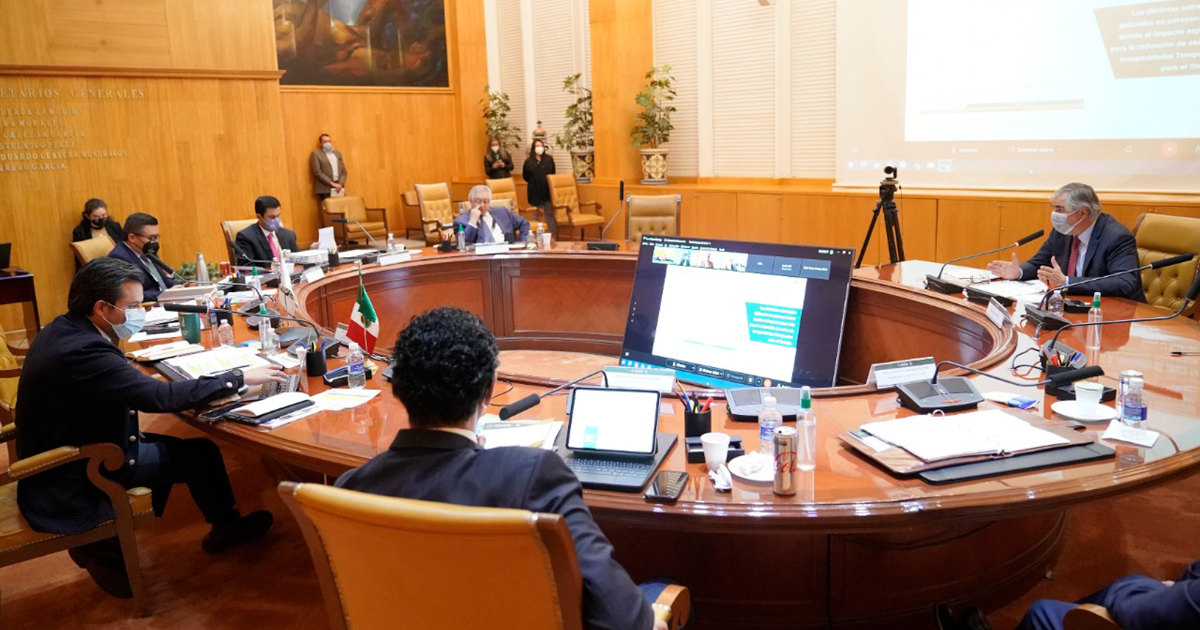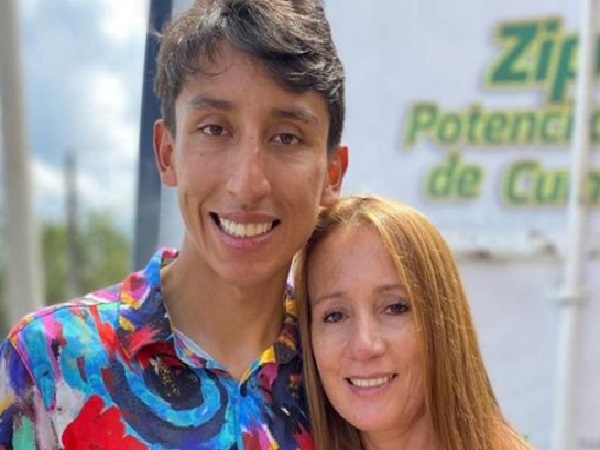- The general director, Zoé Robledo, highlighted that the National Vaccination Plan has meant a reduction in the number of hospitalizations and deaths.
- Dr. Célida Duque Molina, director of Medical Benefits, detailed the actions in hospital reconversion, creation of the MARSS and the recovery of medical services.
Coordinated and innovative work has allowed the Mexican Social Security Institute (IMSS) to give, since the beginning of the Covid-19 pandemic, a forceful and organized response to guarantee care for anyone who tests positive for this disease, cut chains contagion, identify positive patients in a timely manner, provide specialized medical care and offer digital tools that allow procedures to be carried out for the benefit of workers and beneficiaries.
Within the framework of the ordinary session of the H. Technical Council, IMSS authorities presented the institutional strategy that has allowed, at this stage of the health emergency, to attend to the population that goes to the Social Security medical services due to the presence of the variant Omicron.
The general director of the Institute, Maestro Zoé Robledo, explained that unlike the three waves of the pandemic that the country has faced, the characteristics of the Omicron variant and the advances in the National Vaccination Plan have meant a reduction in the number of hospitalizations and deaths, despite the increase in infections.
He explained that from January 1 to 24, 386,163 cases of people positive for Covid-19 were detected, of which 11,932 required hospitalization. In the first wave, of the total cases detected by the IMSS, 38 percent reached hospitalization, and currently the indicator is 3.08 percent.
The General Director of Social Security highlighted the efforts of the nine regulatory directorates that have participated in the construction of strategies to serve the population, in particular the Directorates of Medical Benefits, Economic and Social Benefits, Incorporation and Collection, Innovation and Development Technological, and Planning for Institutional Transformation.
For her part, Dr. Célida Duque Molina, director of Medical Benefits, explained that among the main agreements with the H. Technical Council in support of the health emergency, the issuance of a special contingency permit was carried out from IMSS digital platforms, certification of the state of pregnancy, issuance of maternity leave, Covid-19 Bonus, employment support for Covid-19, COVID Guards and the delivery of medicines at home to patients belonging to vulnerable groups.
Similarly, he indicated that as part of the strategies is the expansion of the universe of affiliation to Domestic and Independent Workers, the simplified payment agreement in installments, the declaration of non-working days and suspension of deadlines, and in order to cut chains of contagion, online payment was established through the Interbank Electronic Payment System for the renewal of the insurance of various modalities.
Likewise, he emphasized that the most important action to face the health emergency was the conversion of hospitals into Second and Third Level Care units, the creation of Temporary Care Centers (CAT), hospitals with early opening, and at the peak of the second wave of the pandemic, achieve the authorization of 20 thousand exclusive beds for patients with Covid-19.
Dr. Duque Molina highlighted the creation of the Social Security Respiratory Care Modules (MARSS), a strategy that did not exist in the country and that has allowed the timely identification of patients with suspected respiratory disease.
He explained that from March 2020 to date, about 12 million services have been provided, and in the last 20 days, 1,160 million people were served; Currently there are 5,181 MARSS, which are a pillar in the care of the pandemic, highlighting that at the initiative of the Director General of the IMSS, 56 MacroMARSS were implemented at the national level – which integrate at least six modules – and have allowed shortening times of wait in care; In 10 days of operation, there have been 135,000 queries and almost 140,000 rapid tests.
Another relevant strategy is the telephone follow-up of COVID-19 positive patients with risk factors. This follow-up has been given to 1.2 million patients through 4 million calls, which has allowed timely identification of complications to refer to Second Level medical units.
In the presentation before the H. Technical Council, the director of Medical Benefits highlighted that after the second wave the general director, Zoé Robledo, gave instructions to start the strategy of recovery of medical services in support of patients with priority ailments.
The strategy was through National Conferences and weekends in the states, which allowed granting 122 million visits, more than in 2020.
He added that since the beginning of the pandemic an intensive social communication campaign has been carried out, currently with the dissemination of leaflets and canvases, the Home Care Guide for People with Respiratory Infection and materials to publicize the MARSS, digital disability, COVID 3.0 permit and soon capsules on prevention measures in collaboration with outstanding athletes.
For his part, Dr. Mauricio Hernández Ávila, Director of Economic and Social Benefits, highlighted that another very important tool is the COVID-19 Permit, aimed at workers insured by the IMSS, who can justify the absence from their jobs. in a timely manner and favoring breaking the chains of contagion as it is an online procedure.
On his occasion, the counselor Salomón Presburger Slovik, representative of the employer sector of the Confederation of Industrial Chambers of the United Mexican States (CONCAMIN), recognized the intense work that the IMSS has done in dealing with the pandemic, and in particular the staff of health; considered it important to reinforce the dissemination so that the population identifies symptoms of Covid-19 in a timely manner.
The ordinary session was attended by the councilors of the labor sector: José Luis Carazo Preciado, of the Confederation of Workers of Mexico (CTM), and Rodolfo Gerardo González Guzmán, general secretary of the Regional Confederation of Mexican Workers (CROM).
On behalf of the employer sector, José Héctor Tejada Shaar, president of CONCANACO-SERVYTUR; José Antonio Abugaber Andonie, president of CONCAMIN, Salomón Presburger Slovik, owner representative for CONCAMIN and Ricardo David García Portilla, substitute counselor of the employer sector of CONCAMIN.
In a virtual way, the councilors of the labor sector: José Noé Mario Moreno Carbajal, of the Revolutionary Confederation of Workers and Peasants (CROC); and Sergio Beltrán Reyes, from the National Union of Mining, Metallurgical, Steel and Similar Workers of the Mexican Republic (SNTMMSSRM); from the employer sector, Manuel Reguera Rodríguez, from CONCAMIN, and from the government sector, Omar Antonio Nicolás Tovar Ornelas, general director of Programming and Budget “A” of the Undersecretary of Expenditures of the Ministry of Finance and Public Credit (SHCP).
As guests, Paola Patricia Cerda Sauvage, delegate and public commissioner owner of the General Coordination of Surveillance and Control Bodies of the Ministry of Public Administration (SFP), and Selene Cruz Alcalá, general director of Analysis and Prospective of the Ministry of Labor and Social Security (STPS).
Official Information is a service of El Economista to contribute to the dissemination of information and communications from governments, municipalities and relevant public actors for citizens.









